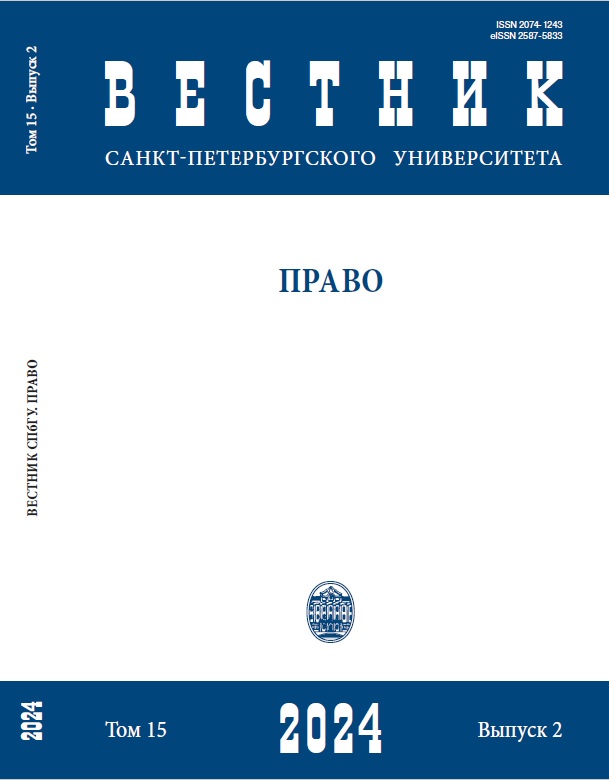The ratio decidendi of the decision of the Constitutional Court of the Republic of Indonesia from the perspective of legal positivism
DOI:
https://doi.org/10.21638/spbu14.2024.211Аннотация
Indonesia is currently facing economic problems related to the lack of investment and lack of job opportunities, as well as the difficulty of licensing. Therefore, the preparation of laws and regulations using the omnibus law method was then carried out to overcome these conditions so that Indonesia succeeded in issuing Law Nо. 11 of 2020 concerning Job Creation. Even though the existence of the Law is critical because of the various shortcomings in it, ranging
from the mechanism for its preparation, the involvement of the parties, excessive (over
regulation) to the level of norms which experts and legal observers feel need a more in-depth study. Based on this fact, the question then arises: What is the ratio decidendi of the Decision of the Constitutional Court of the Republic of Indonesia Nо. 91/PUU-XVIII/2020? And is the decision of the Constitutional Court of the Republic of Indonesia Nо. 91/PUU-XVIII/2020 in accordance with the perspective of legal positivism? The method in this manuscript uses normative legal research. Based on the analysis, Law No. 11 of 2020 was decided as conditionally unconstitutional. So that the legislators need to improve no less than two years
since the decision of the Constitutional Court of the Republic of Indonesia Nо. 91/PUUXVIII/2020 was pronounced. So that Law Nо. 11 of 2020 in the context of legal positivism can also be said to be contrary to the constitution and declared to have no legal consequences.
Ключевые слова:
Ratio Decidendi, Constitutional Court, Legal Positivism, decision, Constitution of Indonesia, unconstitutional law, normative legal research
Скачивания
Библиографические ссылки
Загрузки
Опубликован
Как цитировать
Выпуск
Раздел
Лицензия
Статьи журнала «Вестник Санкт-Петербургского университета. Право» находятся в открытом доступе и распространяются в соответствии с условиями Лицензионного Договора с Санкт-Петербургским государственным университетом, который бесплатно предоставляет авторам неограниченное распространение и самостоятельное архивирование.






